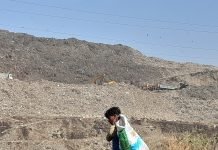
Centre for Science and Environment (CSE), one of South Asia’s leading think tanks on the politics of development, environment, and climate change, are organizing a global online training program that focuses specifically on understanding climate data and analyzing it and using it to tell climate change stories to different stakeholders.
Climate change poses an existential threat to humanity. It is the world’s biggest social, political, economic, and environmental challenge. While countries continue to reluctantly align themselves to meet their climate change promises, communicating the urgency of this crisis remains a challenge for most stakeholders.
The critical state that the world is in has been amply re-emphasized by the recently released Sixth Assessment Report (AR-6) of the UN Inter-governmental Panel on Climate Change (IPCC). The report that provides the most up-to-date understanding of the climate system and climate change, unambiguously holds human activity responsible for climate change and projects its future impacts on us.
The program will have a special session on IPCC’s latest reports and what they mean for your continent, country, and state. A session on the upcoming UN Climate Change Conference 2022 (COP 27) will also be held.
The program is designed to inform about established as well as new trends and approaches in data-driven development communications for effective presentation and maximum impact. It will also introduce popular analytical tools and conceptual frameworks and offer insights into the global legal framework and politics to better understand climate-related numbers.
“There is drama in numbers, especially when these numbers give you a trend — are things getting better or worse. It is even more powerful when you can use the trend to understand the crisis, the challenge, and the opportunity; and take appropriate actions,” says Sunita Narain, director general, Centre for Science and Environment.
What will you learn?
*Climate impacts, science, and the politics: Understand essential concepts of climate change and the global climate negotiations
* Data collection: Learn how and where to search for relevant data on climate change and development.
*Data analysis: Develop skills to analyze and interpret trends in climate science and impacts.
*Data visualization: Learn to visualize data for effective communication.
*Report writing: Develop skills to process, visualize and transform climate data into simple, compelling, and informative ‘stories’ for print and web.
Course structure
The self-paced online program will have video lectures, presentations, tutorials, quizzes, and assignments. Participants will get an opportunity to work on an in-depth project of their choice. The program will have three live interactive sessions for meeting the trainers and fellow participants.
The program has been designed in such a way that it can be completed along with a regular job or study.
The course is broken down into five modules –
Module 1: Introduction to climate change: science, politics, and impacts
Module 2: Data for effective communication and informed decision-making on climate change for development – The World in my Backyard
Module 3: Finding the right data on climate
Module 4: Data processing and analysis to make data meaningful
Module 5: Data visualization
The duration of the course is 15 hours, and the fee is Rs 3,500 for Indian participants and US$ 100 for Global participants
For registration, click here.










